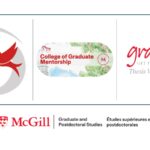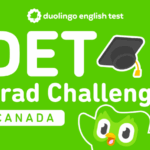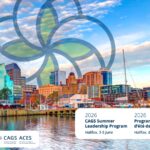2022-2023 Canada School of Public Service (CSPS) Student Paper Competition

Lydia Laflamme, Master’s Student, Department of Political Science,
Laval University
Paper: Encouraging Environmentally Responsible Eating Behaviours Through Experimentalist Governance
This paper discusses the problem of the climate emergency and highlights Canada’s responsibility in this fight, specifically in terms of the population’s dietary behaviour. The paper proposes using informational labels on the environmental impacts of foods to influence consumer choice. To ensure the effectiveness and acceptance of this solution, the paper encourages federal public servants to use an experimental method. Experimentation will allow them to learn and adapt policies based on the results obtained, while optimizing social acceptance and developing public servants’ competencies.
Lydia Laflamme is a master’s student in political science at Université Laval in Québec. She is a member of the Research Chair on Democracy and Parliamentary Institutions, the Université Laval Research Group in Politics and Cognition, and the Leadership Chair in the Teaching of Digital Social Sciences. Her main areas of research are political psychology and electoral politics in Quebec and the rest of Canada. More specifically, she studies intergroup conflict, the impact of identity on political attitudes, and the connections between voter well-being and behaviour.

David Jones, Master’s Student, Munk School of Global Affairs and Public Policy
University of Toronto
Paper: Strategic Recommendations for Health Canada
The Honourable Jean-Yves Duclos recently stated that “we have to change the way we deliver healthcare in Canada”. Health Canada needs a strategy to deliver change in the context of provincial jurisdiction for healthcare delivery and growing demands for federal funding. This paper recommends that Health Canada develop an ‘innovation cheerleader’ function to support provincial healthcare innovation, whilst enabling Health Canada to become a better-informed party for future funding negotiations. Ultimately, this will improve healthcare services, leading to enhanced health outcomes for Canadian citizens, whilst supporting the optimisation of future federal funding allocations.
David is a policy analyst and advisor, specializing in economics, healthcare and public policy. Currently, David is midway through the Master of Public Policy degree at the Munk School of Global Affairs & Public Policy (achieving straight A+ grades in Year 1). He also studied Economics at the University of Cambridge. David is currently on a career break from NHS England, where he worked primarily as Head of workforce in the strategic finance team. Previously, he was an economics consultant, advising public and private-sector clients. He has joined Telus as a research fellow for summer 2023, focusing on digital health.
David is passionate about providing high-quality research, analysis and advice that both supports efficient policymaking and improves the welfare of society. He has published articles in several Canadian media outlets (Globe & Mail, Toronto Star, Hill Times) and spoke at the Canadian Health Workforce Conference (2022) about healthcare workforce shortages.

Overview
The National Student Paper Competition (NSPC) was launched in 2013 with the aim of:
- introducing innovative ideas and bright new thinkers to the Canadian public service
- enhancing public service excellence and encouraging high performance
The NSPC offers a unique opportunity for talented graduate students to connect with senior public servants, expand their networks, nurture their leadership skills, and foster employment opportunities with the federal public service.
The NSPC is an annual competition organized by the Canada School of Public Service in partnership with the Canadian Association of Programs in Public Administration and the Institute of Public Administration of Canada. The competition is also supported by various Canadian higher-education institutions and associations, including CAGS.
Outcomes and benefits of the competition
- A strong partnership between the federal public service, universities and higher-education associations that encourages graduate students to apply academic knowledge and skills to inform Canadian public policy and the Public Service of Canada.
- An increased number of promising graduate students in different fields of expertise across Canadian universities working with the federal public service and contributing with innovative, research-based ideas to enhance the lives of all Canadians.
- A talented, diverse, inclusive and modern workforce equipped with the skills needed to embrace new workplace challenges, design services, mobilize knowledge, and respond to the country’s evolving needs.










